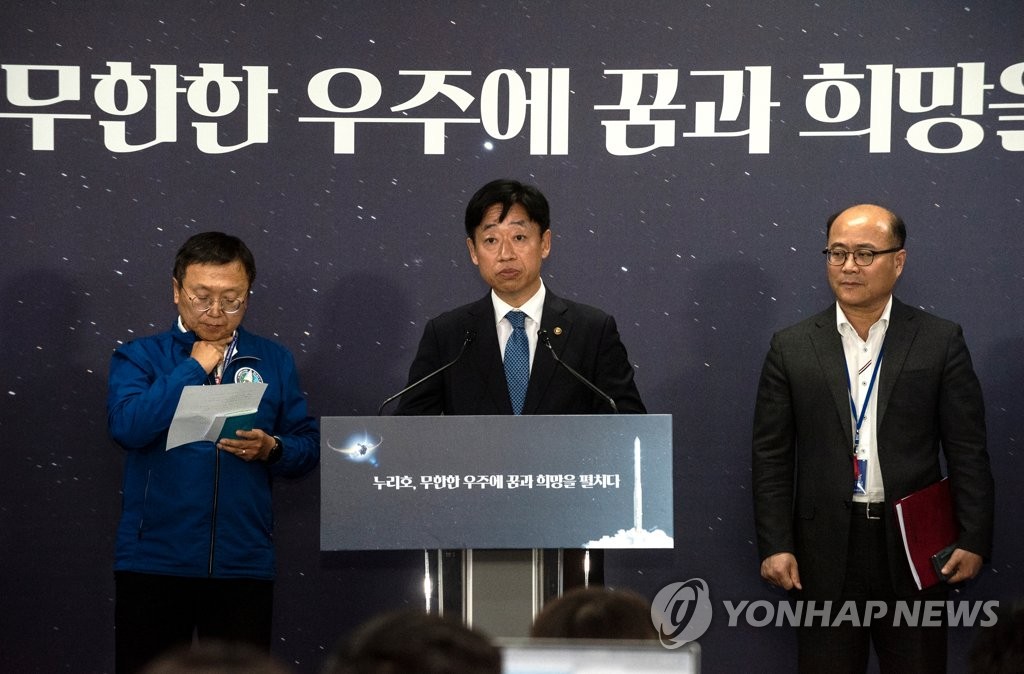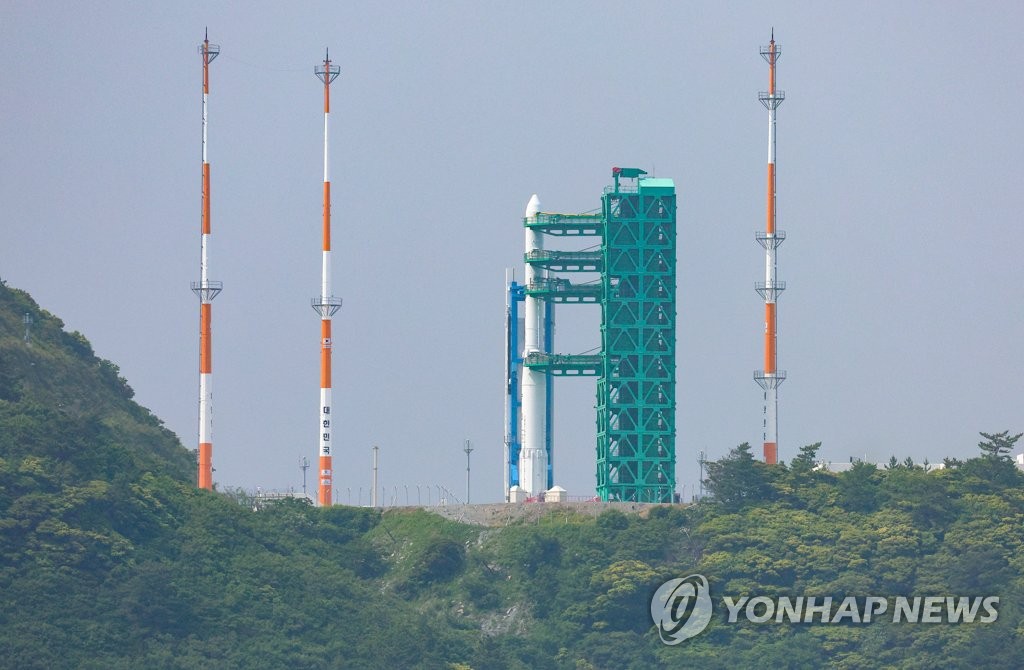- California Assembly OKs highest minimum wage in nation
- S. Korea unveils first graphic cigarette warnings
- US joins with South Korea, Japan in bid to deter North Korea
- LPGA golfer Chun In-gee finally back in action
- S. Korea won’t be top seed in final World Cup qualification round
- US men’s soccer misses 2nd straight Olympics
- US back on track in qualifying with 4-0 win over Guatemala
- High-intensity workout injuries spawn cottage industry
- CDC expands range of Zika mosquitoes into parts of Northeast
- Who knew? ‘The Walking Dead’ is helping families connect
S. Korea delays launch of space rocket Nuri over technical glitch
South Korea decided Wednesday to postpone the launch of its space rocket Nuri due to a technical glitch found during final preparations, the science ministry said.
“While controlling a helium valve, aerospace engineers found a communications problem between a launch control computer and a launch pad facility control computer,” Vice Science Minister Oh Tae-seog said in a briefing at the Naro Space Center in Goheung. “The valve is OK, but the system might matter when it goes into the automatic operation system. So we inevitably canceled the scheduled launch.”
The engineers detected the problem at around 3:30 p.m., just before they were to start injecting fuel and oxidizer into the rocket.

The launch management committee, which oversees the entire process, held a meeting on the issue and decided to delay the schedule.
The committee will determine whether South Korea will go ahead with the launch Thursday.
The rocket will remain erected at the launch pad until the upcoming decision is made, the ministry said.
The 200-ton Nuri had been scheduled to blast off from the Naro Space Center in the country’s southern coastal village of Goheung at around 6:24 p.m.
It is not the first time that Nuri’s launch has been postponed due to technical issues.
In June last year, South Korea delayed its second launch for five days due to a technical glitch in the rocket’s oxidizer tank sensor.
Nuri, also known as KSLV-II, is loaded with eight practical satellites: South Korea’s second next-generation small satellite, the NEXTSAT-2, four microsatellites developed by the Korea Astronomy and Space Science Institute, the JAC by Korean engineering company Justek Inc., the LUMIR-T1 by local space firm Lumir Inc. and the KSAT3U by startup Kairospace Co.
In 2022, Nuri sent the dummy satellite into its target orbit as planned, making South Korea the seventh country in the world to have developed a space launch vehicle that can carry a more than 1-ton satellite, after Russia, the United States, France, China, Japan and India.
The country has secured the key independent technology for developing and launching space rockets carrying homegrown satellites, opening up a new era in the country’s space program.
The 2 trillion-won (US$1.52 billion) Nuri project that began in 2010 will continue until 2027, with three additional rocket launches.












